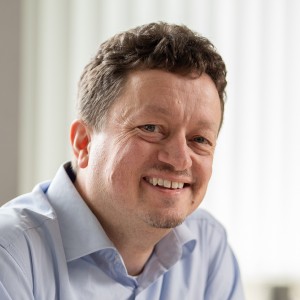A quantum computer is a device that uses fundamental laws of quantum physics, such as the superposition principle, to process information. Its building blocks are quantum bits (or qubits) and quantum gates. Equipped with this, a quantum computer can solve problems (e.g. factorization of large numbers, solution of certain equations, description of the evolution of a many-body quantum system), which despite hard-work, no comparable classical algorithms have been found so far.

The first prototypes of quantum processors have already been built, using trapped ions and superconducting devices. Other physical implementations, such as quantum dots in semiconductors, colour-centers in solids, or photons, are also being thoroughly investigated.
However, a scalable quantum device is still far from realization. In fact, the construction of such a device is one of the most challenging enterprises confronting science and technology to date.
One of the main obstacles is the presence of decoherence, that is, uncontrolled interaction of the quantum device with its environment. Fortunately, error-correcting codes can overcome the effect of decoherence, although so far existing proposals are not sufficiently practical. In any case, companies such as Google, Microsoft, IBM, and Intel have taken a leading role in order to develop quantum computers in the next decades.
At the same time, quantum software, i.e. programs that run on a quantum computer and that solve complex problems, is being developed in companies and research institutions. Prototypes of quantum computers involving dozens of qubits have already been announced, although it is not clear if they will be able to outperform classical computers in any useful task. Another approach is coherent quantum annealing, which could be used for optimization problems. Although quantum annealers have been constructed, they still suffer from high degrees of decoherence and it is unclear if under those circumstances they will become useful at all.
In the past, Munich scientists have identified and developed several technologies for quantum computing. They have also investigated ways of avoiding, mitigating or even harnessing decoherence for quantum information processing. They will join forces in order to significantly advance the field.
In order to pursue its main research goals, RU-C will pursue new experimental techniques, while collaborations with RU-A, RU-B, and RU-F will combine ideas of topological matter and quantum control to address decoherence. At the same time, as a result new paradigms of research will be explored. The work on quantum computing in this research unit (RU-C) is complemented by that on analogue quantum simulators in RU-B and will strongly profit from the interaction with the groups working on quantum information theory ( RU-A) and quantum sensing ( RU-E).
RU-C Coordinators
Barbara Kraus
Quantum Computing, Verification of Quantum Device
MCQST Speaker
RU-C Co-coordinator

Active Members in RU-C
Jonathan Finley
Semiconductor Nanostructures and Quantum Systems
RU-E Co-coordinator
Research Website





















